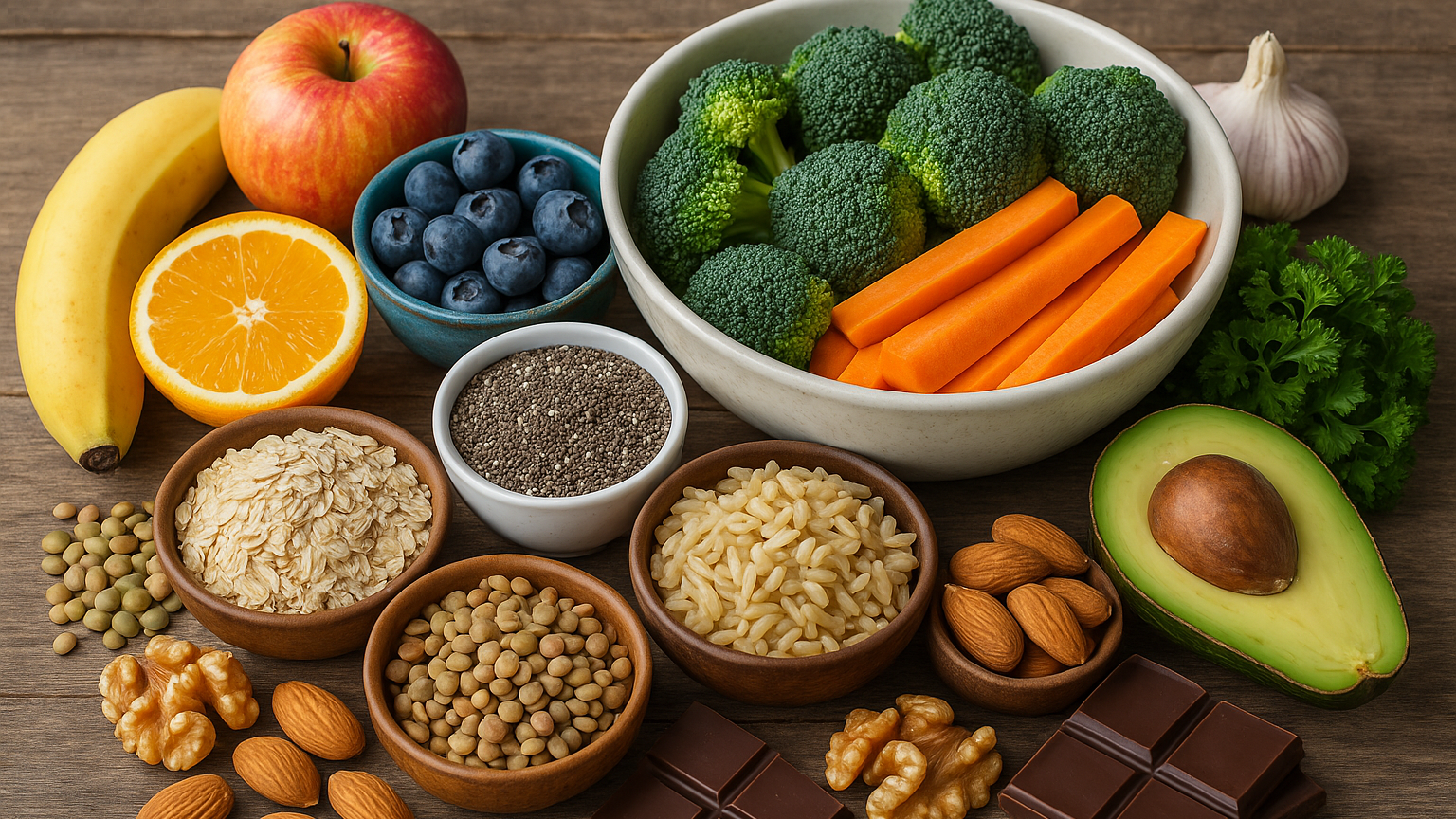Simple Nutritious Foods for Health, Energy, and Longevity
Explore the benefits of simple nutritious foods that improve health, boost energy, and promote longevity. Learn how incorporating whole foods into your diet can enhance your well-being.
In today’s world, we often find ourselves overwhelmed by complex diets and trending superfoods. However, the true power of nourishment lies in simple nutritious foods that are easily accessible and provide your body with essential nutrients for health, energy, and longevity. By incorporating whole, minimally processed foods into your daily routine, you can support your body’s natural processes and improve your overall well-being.
When it comes to nourishing your body, focusing on simple nutritious foods is key. These foods are packed with vitamins, minerals, healthy fats, and protein, all of which support your body’s natural processes, boost your mood, and help you maintain focus and vitality. Here are some simple, everyday foods to add to your diet for optimal nourishment.
The Benefits of Simple Nutritious Foods for Health and Energy
Leafy Greens: A Powerhouse of Nutrients
Leafy greens, such as spinach, kale, Swiss chard, and arugula, are among the most nutrient-dense foods you can eat. Packed with vitamins A, C, K, and folate, they also contain essential minerals like iron and calcium. These greens are rich in antioxidants, which help protect your body from oxidative stress and inflammation.
Incorporating simple nutritious foods like leafy greens into your diet is easy. You can include them in salads, smoothies, or sauté them as a side dish. Their high fiber content supports digestion, and their low-calorie, high-water content helps you stay hydrated and feel full.
Whole Grains: A Source of Sustained Energy
Whole grains, like quinoa, brown rice, oats, and barley, are excellent sources of complex carbohydrates, fiber, and essential B-vitamins. Unlike refined grains, which are stripped of their nutrients, whole grains retain fiber and nutrients, making them more beneficial for overall health.
Whole grains provide sustained energy, regulate blood sugar levels, and promote digestive health. They are versatile and can be added to breakfast porridge, grain-based salads, or used as a side dish.
Fresh Fruits: Nature’s Candy for Your Health
Fruits are naturally rich in vitamins, minerals, and antioxidants that support your immune system and overall health. Berries like blueberries, strawberries, and raspberries are high in antioxidants, while citrus fruits like oranges and grapefruits are packed with vitamin C to boost immunity.
Incorporating a variety of fruits into your diet, whether as a snack, in smoothies, or added to salads and yogurt, is a delicious way to get a boost of vitamins and minerals.
Nuts and Seeds: Healthy Fats for Brain and Heart Health
Nuts and seeds, such as almonds, walnuts, chia seeds, and flaxseeds, are great sources of healthy fats, protein, and fiber. They are rich in omega-3 fatty acids, which support brain health, reduce inflammation, and improve heart health. For more information on the health benefits of omega-3 fatty acids, you can refer to this https://www.health.harvard.edu/nutrition/omega-3-foods-incorporating-healthy-fats-into-your-diet
These foods are also packed with minerals like magnesium, zinc, and vitamin E. Snack on a handful of nuts or sprinkle seeds over salads or smoothies for a satisfying and nutritious boost.
Why Incorporating Simple Nutritious Foods Can Boost Your Mood
Eating simple nutritious foods can significantly improve your mood, boost energy, and enhance cognitive function. These foods provide the essential building blocks your body needs to function optimally, and they are packed with nutrients that support brain function and energy levels.
Fatty Fish: A Key Source of Omega-3s
Fatty fish, such as salmon, mackerel, sardines, and trout, are excellent sources of omega-3 fatty acids. These fats are essential for brain health, reducing inflammation, and improving heart health. Fatty fish also provide protein and important vitamins like D and B12.
Eating fatty fish a few times a week helps maintain brain function, supports cardiovascular health, and boosts mood. Grilling, baking, or broiling fish preserves its nutritional value while making it a delicious and healthy option.
Eggs: A Nutrition Powerhouse
Eggs are a nutrition powerhouse. They provide high-quality protein, essential vitamins like B12, D, and choline, and healthy fats. The protein in eggs helps support muscle growth and repair, while the healthy fats promote satiety and provide long-lasting energy.
Enjoy eggs in various ways—scrambled, boiled, poached, or as an ingredient in omelets or frittatas. Eggs are quick, easy, and offer great nutritional value in any meal.
Simple Nutritious Foods for Longevity and Vitality
Eating a variety of simple nutritious foods every day is one of the best ways to fuel your body and mind, keeping you energized, focused, and feeling your best. The beauty of these foods is that they don’t need to be complicated—simple is often the most effective.
Incorporating Healthy Oils Into Your Diet
Healthy oils like olive oil, avocado oil, and coconut oil provide essential fats that promote heart health, brain function, and healthy skin. These oils are rich in monounsaturated fats, which reduce inflammation and lower cholesterol.
Use these oils for cooking, in dressings, or drizzle them over vegetables or salads. They add flavor while nourishing your body from the inside out.
Yogurt and Fermented Foods for Gut Health
Yogurt, especially unsweetened, probiotic-rich varieties, supports gut health by introducing beneficial bacteria to your digestive system. These probiotics balance the gut microbiome, improving digestion and supporting immunity. Fermented foods like kimchi, sauerkraut, and kefir offer similar benefits and can be included in your diet as snacks or added to meals.
Fermented foods not only improve gut health but also boost nutrient absorption and mood by supporting the gut-brain connection.
Simple is Often the Best Approach
True nourishment doesn’t require complicated or expensive foods. By including simple nutritious foods like leafy greens, whole grains, fruits, and healthy fats into your routine, you can support your body’s needs, improve your mood, and maintain long-term health.
Eating a variety of nutrient-dense foods each day is one of the best ways to fuel your body and mind, keeping you energized, focused, and feeling your best. The beauty of nourishing foods is that they don’t need to be complicated—simple is often the most effective.

